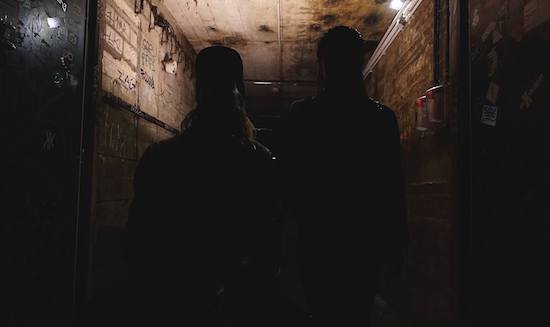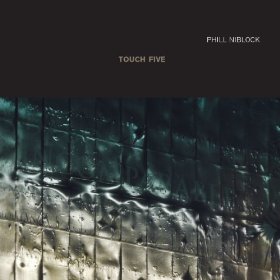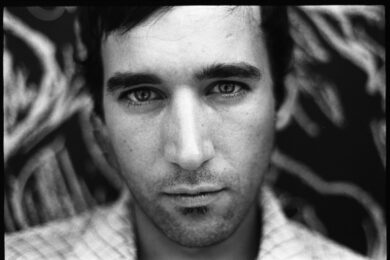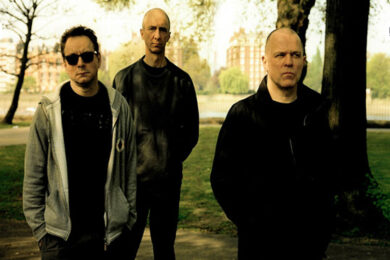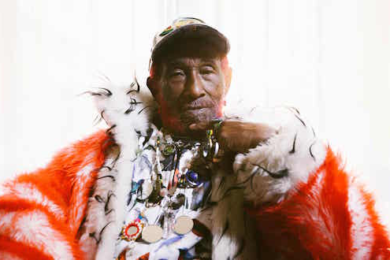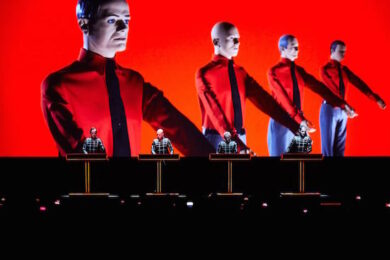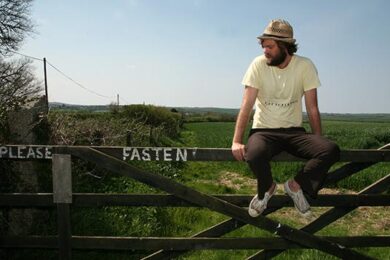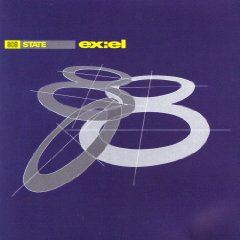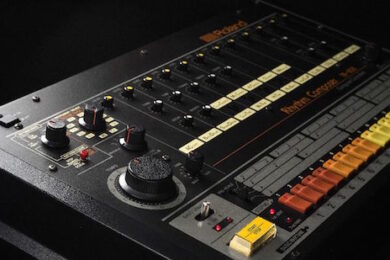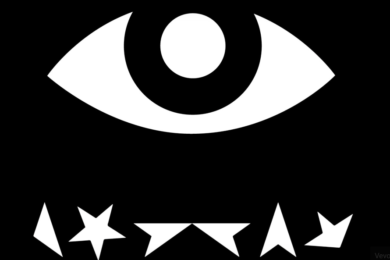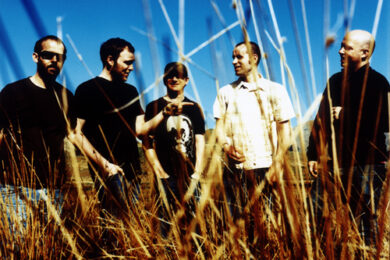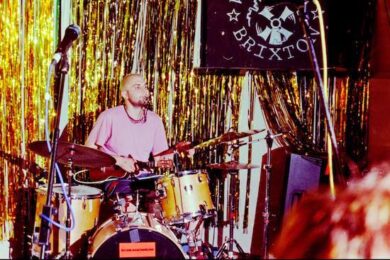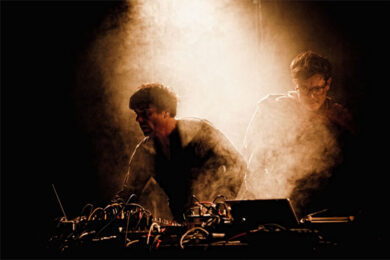Portrait by Özlem Sen. LABOUR* play Musica Sanae on November 15
August 2018, and in Berlin’s Kraftwerk – the vast club and arts space in Mitte that once the city’s main heating plant – strobes split violently through the pitch darkness of the hall. Surreal and distressing images flash in quick succession on screens.
Over a dozen percussionists, previously hidden to the audience, begin to surface on stairwells and rafters, creating a pummelling, propulsive noise over wailing Saxophone. This frenzied, intense production is the closing performance of Atonal festival, and the very first performance of LABOUR – a Berlin based, high-concept electronic duo comprising of Farahnaz Hatam and Colin Hacklander.
“The piece we debuted at Atonal”, Hacklander explains to me, “was called Next Time, Die Consciously.” The piece pulled together various strands of electronic theory that Hacklander and Hatam had been plugging away at for years, including stochastic synthesis, microsounds and rhythmic cells. “It’s conjuring up the notion of that which propels beyond, outside of the container of this lifetime.”
In the year and a half since their inception, LABOUR have been performing increasingly adventurous sonic pieces at arts festivals across Europe. This weekend, they debut an ambitious new piece at Musica Sanae – a travelling festival (it’s previously operated in Naples and the Polish spa resort of Sokolwsko) that focuses on our notions of hygiene, health, wellbeing, progress and sanity. For their piece, it’s sanity that has the most interest to LABOUR.
“I think a lot of the ideas in this relate quite well to ideas we explored in ‘Next Time, Die Consciously’”, explains Hacklander, “basically this notion of the self as constructed, therefore deconstructable. Finding ourselves in the wake of absolute heteronomy – ourselves being constructed entirely by external forces, and looking at notions of normalisation. Which characteristics, which things can be considered sane and insane at different times in history and at different places?”
The duo began thinking about diagnoses of hysteria throughout history – about who gets to decide what behaviour is hysterical, and for whom that diagnosis is convenient. It goes without saying that the gender politics throughout diagnoses of hysteria in history have been grim to say the least. “What about the inherent power relations in play that produce and validate these sort of things? Hysteria can very much be seen as a political construct in different times. The way that this manifests itself in the musical piece is positioning listening and overall composition that explores format and space and elements through sound, through drums, in an expanded format.”
“Moving outside of the PA space” continues Hatam, “which is something we do often now. We move away from just using the space, and activate the sound inside the space acoustically. We try to play with that, and question the formats that are already set up in a concert situation.” The piece at Musica Sanae is scheduled to involve a percussion ensemble of 20 people, as well as piano by the composer Anthony Pateras, the strange, ritualistic Agf HYDA and the LED light art of audio-visual artist Fredrik Olofsson.
Where exactly did the strange and enticing LABOUR come from? The two both spent some time running an experimental venue in Berlin, and both came from a background of study in electronic music. Colin Hacklander is a percussionist and drummer who specialised in post-tonal theory, whilst Farahnaz Hatam – whose background is originally in molecular biology – is a sound artist, composer and DJ who specialises in algorithmic composition, with many of these ideas having fed into the LABOUR project.
The two had been collaborating under different guises since 2013, but it was in 2018 that their collaboration crystalised into an entirely separate project focused on extended pieces. Despite rising costs in the city, the pair continue to live in Berlin and find it a creative environment. "We were both drawn here because of the fringe aspect that’s existed long before our lifetime [working together]”, Hacklander tells me. "The possibility of experimental lifestyles and life practices, and basically the possibility to apply your ideas to your lifestyle.” If LABOUR have a mission statement, it’s to ‘embrace the darkness’. "This is the starting point for all of our projects” says Hacklander, “to embrace the darkness within in order to move beyond it.”
The pair have also collaborated with the contemporary artist and choreographer Isabel Lewis, at both the Gropius Bau exhibition centre in Kreuzberg, and then later in Philadelphia. “Isobel touches on many things that we’re interested in, particularly acoustical perception, and foregrounding this as a kind of radical gesture within a world that’s predominantly visually orientated” Hacklander explains, “so for example we had twenty percussionists playing shakers and exploring the space, giving a sense of unique instances of reverberation and a distance and spacial depth throughout the space. In terms of activating the space this is one kind of very direct, practical way of activating the space, bringing it to life and exploring it sonically.” The performance at Gropius Bau was inspired by Hieronymous Bosch’s triptych The Garden Of Earthly Delights – attendants were led through empty spaces where sound was used to give the impression of the painting, to allude to the painting’s theme, and to work in conjunction with the architecture of the Gropius Bau.
“The movement of sound through space is one thing we’re really working in” says Hatam, “the shaker performers are moving and activating the space. There’s an inner hall there which is very reverberant, so as they’re moving they’re also creating sound, you can get many points of sound and space in there.”
For more details on the Musica Sanae festival, including prices and tickets, click here

